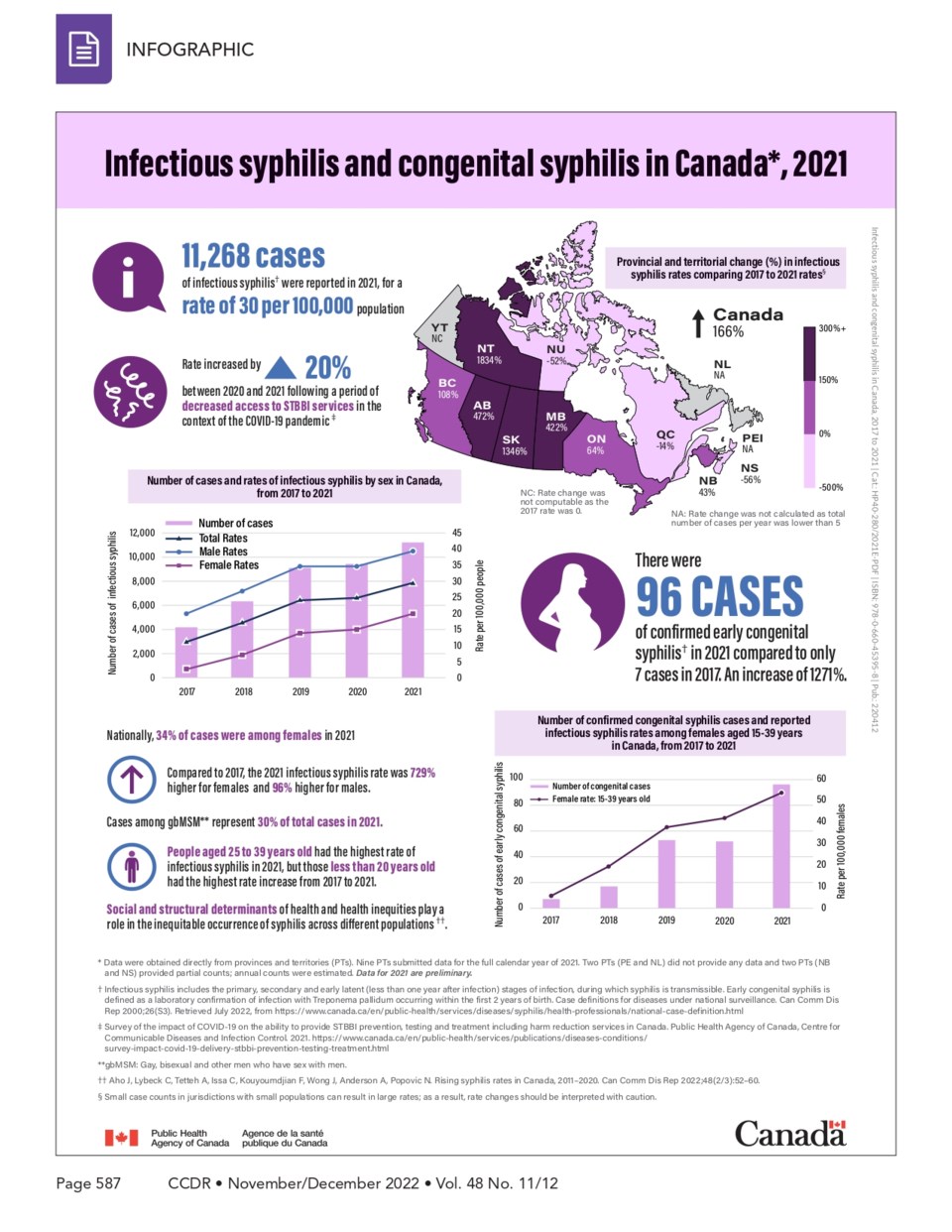The number of syphilis cases it has seen in the first four months of 2023 is almost as high as all the cases in 2022 combined, Public Health Sudbury & Districts said this week.
Infectious syphilis cases have been on a rise across Canada according to data published by the Public Health Agency of Canada.
Between 2020 and 2021, there was a 20-per-cent increase in the rate of infection for syphilis, which is caused by the bacterium treponema pallidum and is treatable with antibiotics. People aged 25 to 29 had the highest rates of infectious syphilis in 2021, but people under age 20 saw the highest rate increase between 2017 and 2021.
Females saw the highest increase nationally, with the rate jumping 729 per cent between 2017 and 2021, while the male rate (which was already higher) climbed 96 per cent.
Check out the infographic below on syphilis infections.

“Currently, Public Health Sudbury & Districts is seeing a concerning increase of syphilis cases within its service area,” PHSD said in a news release. “In all of 2022, a total of 31 confirmed cases were reported, with 23 cases already reported to date in 2023.”
The increase has Public Health encouraging those who are sexually active to be aware of the rising rate, to practise safer sex, and to follow up with a health-care provider and get tested if you are at risk.
“Syphilis is treatable with antibiotics, and early diagnosis and prompt treatment are crucial to prevent the progression of the disease and its complications,” said Taylor McCharles, a manager in Public Health’s Sexual Health Program. “If you are sexually active, practise safe sex, and talk with your partner about their sexual history and STI status. You can also talk to your health care provider for more information on testing.”
Untreated, Syphilis can lead to severe consequences. It can progress to the latent (dormant) stage where no symptoms are present, but the infection can be transmitted. In the third stage, syphilis can cause paralysis, loss of vision, heart and nerve problems, or death 10 to 30 years later.
In the first stage, a painless sore may appear at the site of entry (mouth, genitals, anus) 10 to 90 days after exposure. This sore heals without treatment in a few weeks, but the syphilis bacteria remain in the body. In the second stage, an individual may experience flu-like symptoms two to 12 weeks after the primary stage. A rash may appear on the palms of the hands, soles of the feet, or elsewhere on the body.
The rash will disappear without treatment, but the syphilis bacteria remain in the body, and the individual is highly contagious during this phase.
Public Health’s Sexual Health Clinic provides free, confidential testing and counselling services. Testing involves a simple blood test or a swab of the sore. Other tests depend on the stage and symptoms of the infection. If a test comes back positive, antibiotics are prescribed to treat the infection.
For more information on syphilis or to book an appointment for testing, please visit PHSD.ca or call Public Health Sudbury & Districts at 705-522-9200, ext. 482 (toll-free 1-866-522-9200).
Public Health warns of rising syphilis rate - Sudbury.com
Read More

No comments:
Post a Comment